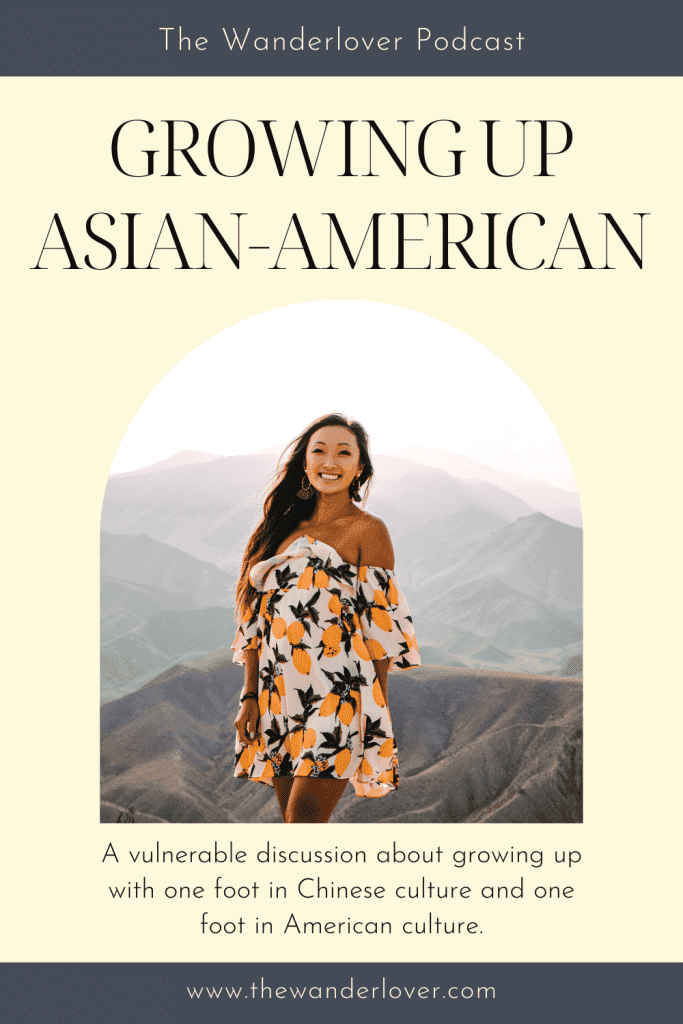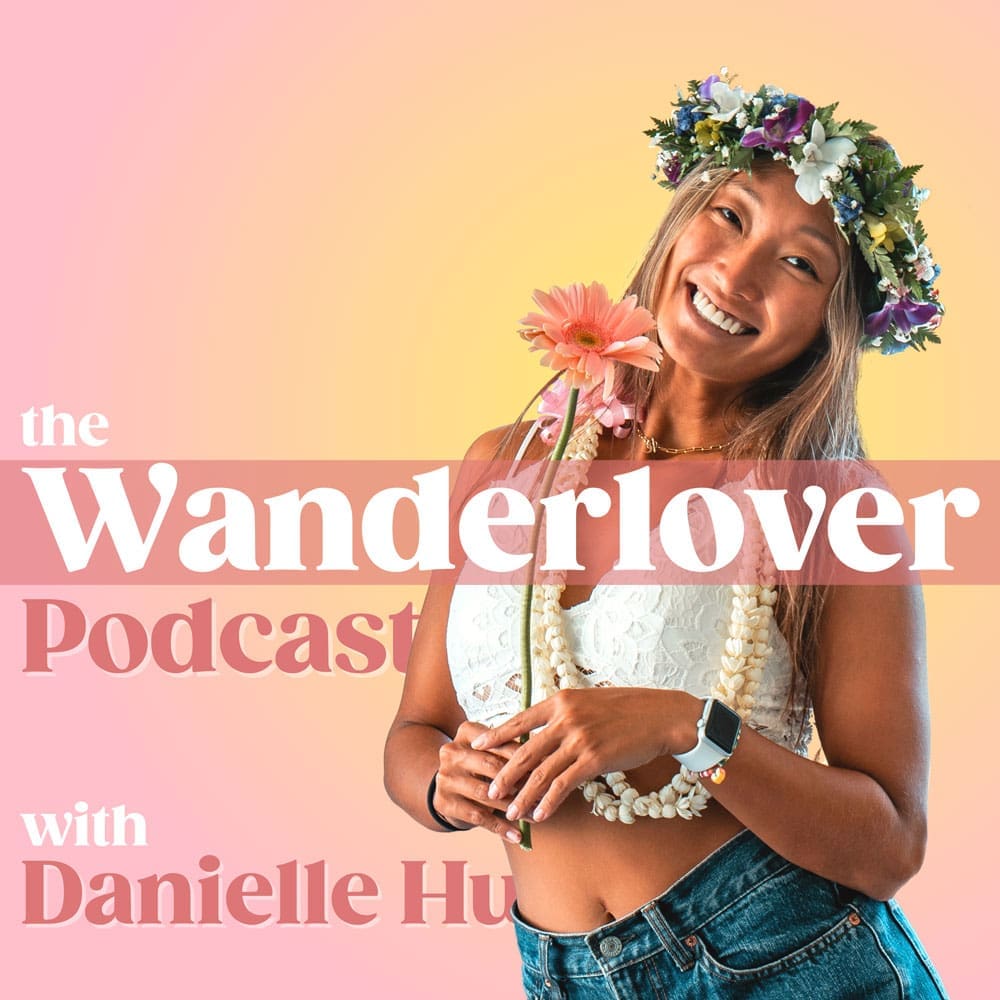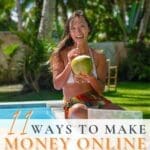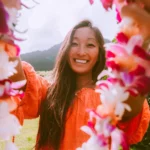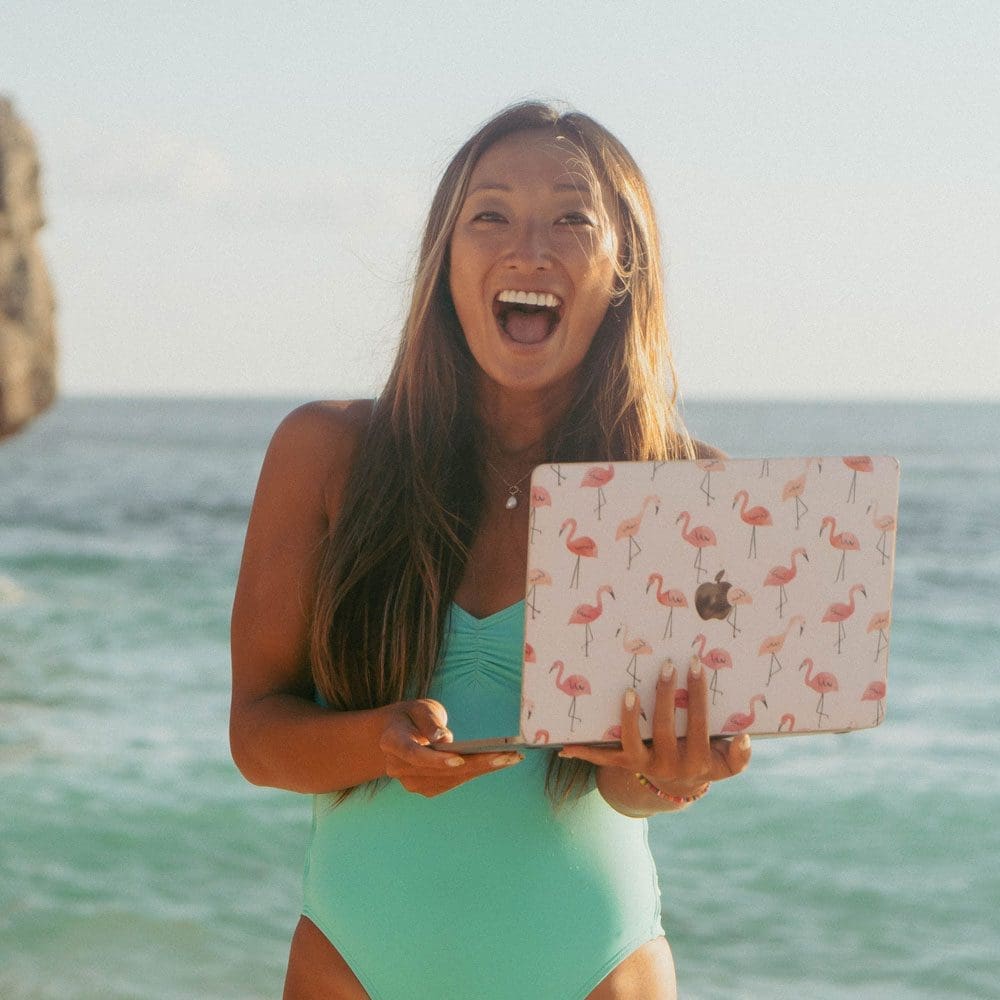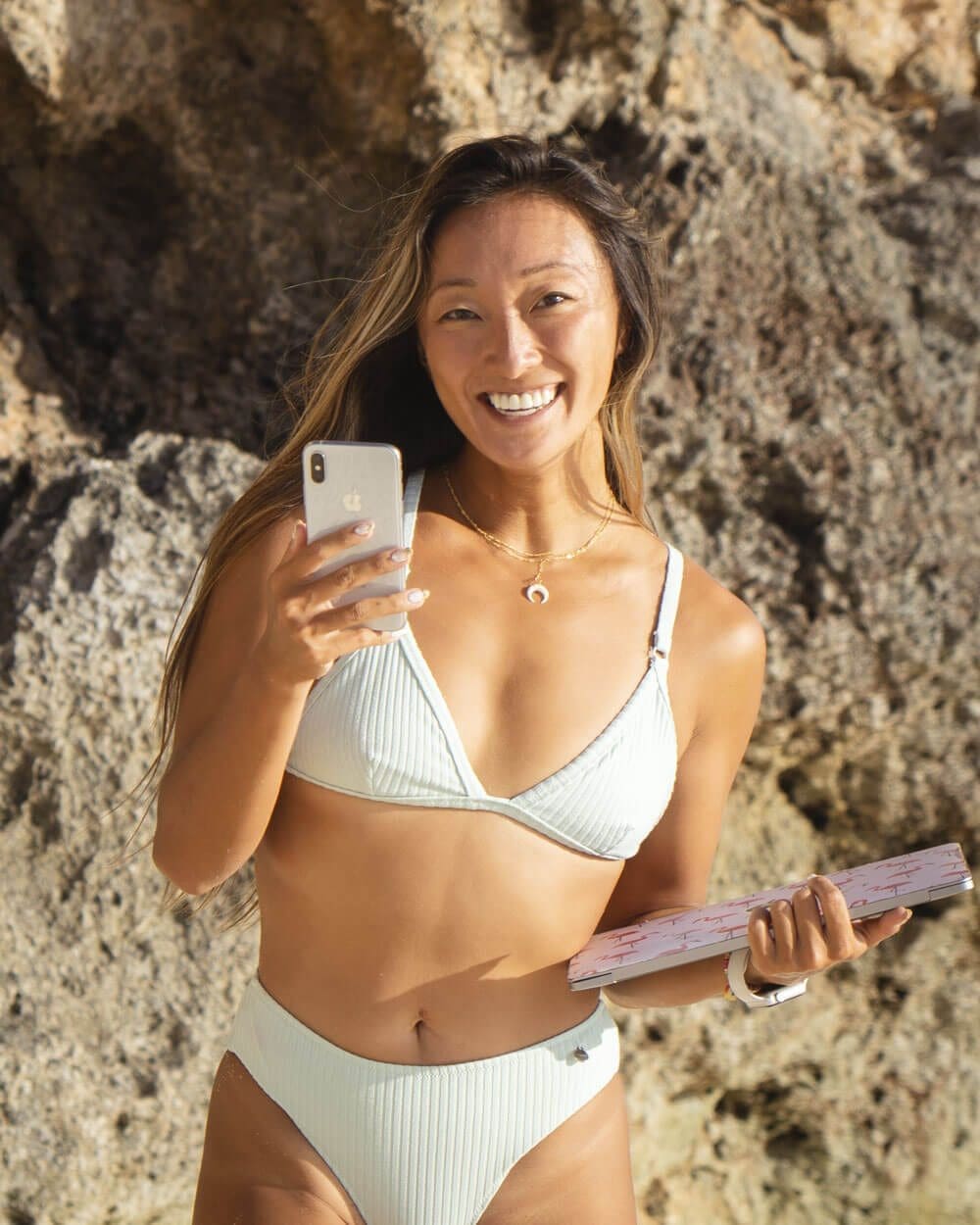In this episode we cover my background as an Asian American (03:37), cultural differences that I observed and experienced growing up (06:40), and Asian representation in media and stereotypes (13:18).
Quick Links
✧ Join The Wanderlover Coaching Group
✧ Download Your FREE 0 to $100K Game Plan
Audio Transcript
Hello from Costa Rica! We’ve been here for a little over a week, and honestly it feels like forever since I left Hawaii. I feel like that’s what happens when you get to a new place and so much is happening every single day.
(49s):
And there’s just so much stimulus around you. So you think back and you’re like, wow, how has that only been like a week’s time? Right? But we are in somebody’s window is a beautiful little surf town, an hour away from Liberia airport. So very convenient to get to White’s heresy, but very international. So you’ll find, you know, cuisines from every country and it’s really close to the beach. There’s good. Surf have been surfing every day and another lush, abundant country with so much to see and explore in our little casita on Instagram stories. I do like a little tour.
(1m 30s):
So we share a pool with a few of our neighbors. So much greenery, so many Palm trees, fruits, animals, and guanos monkeys. And to be honest, it reminds me of our place in Puerto, Escondido in Mexico, which feels like home. It’s nice that there’s bits and pieces of every location that we go to. That reminds me of past places. So this week on the wander liver podcast, I want to address the topic that’s so familiar to me, but maybe completely foreign for you listening, or maybe it might not be depending on who you are and the topic is growing up, Asian American.
(2m 11s):
So growing up with an Asian background in American society, every single one of us has a different story, right? And that’s what makes us unique. So in this episode, I really want to highlight my experiences, my personal experiences outside of business. So this is growing up when I first came to America up until like grade school and high school and college, and then entering corporate America with one foot in Chinese culture and one foot in American culture. And ultimately my hope for this episode is to promote understanding and racial equality, especially after what happened last week in the tragic Atlanta shootings.
(2m 55s):
So when this conversation came up, came into the picture, I was like, I need to be talking to my audience about this. So my heart truly goes out to all of the families everyone affected. And my intention in this episode is to encourage you to, by the end, to have the confidence, to speak up, have conversations with those around you, raise awareness and promote change, because we are all capable to be the catalyst for change. We can have the perception that, you know, the world is as is, and nothing can be changed and people are going to be bad. And this stuff is inevitably going to happen.
(3m 38s):
Or we can be the change that we want to see in the world, right? Like we can choose to deal with it and just sweep it under the rug, or we can be the voice for change. And I hope because you are in my community, that you all feel empowered to do so. And a lot of times to explain why things are the way they are. It’s important for us, not only as a society, but as individuals to look back at where we came from and to understand what happened. So a bit of background, both my parents lived through the communist revolution. This is where the past dictator, he basically got rid of all educated individuals, seize their assets, sent them to rural farmland and basically wanted a communist takeover where land was distributed evenly.
(4m 27s):
There were no classes. And basically since both my grandparents were professors, they were shamed and exiled. And in turn like, so were my parents. And especially my mom who grew up in poverty and through my family lineage, especially on my mom’s side where my grandma’s sacrificed so much to give my mom a better future. I see the same in my parents’ actions in immigrating to America to give me a better future. So I was born in Beijing and back then also crazy how there was the one child policy, right? Like imagine growing up in a society where you were only allowed to have one child, like the government controls, how many kids that you can birth, like how crazy is that?
(5m 17s):
Imagine if the American government implemented that, we’d all be like, what, like what, right. And that’s their reality. So that’s the country my parents grew up in. And when I was two, they both immigrated to America. And coming back to the theme of sacrifice, this immigration process was purely so that I could have a better future. And they knew that better future was more probable in America than communist China. So they had a steam jobs in China and left all of that to move to a completely foreign country. Didn’t know the language didn’t have money. And it was basically all or nothing for them.
(5m 60s):
They came here and struggled to find jobs, you know, like they were doctors and politicians in China. And then all of a sudden in this new country, their degrees weren’t recognized, they couldn’t speak the language and it was hard. They made sacrifices and it was a struggle. And this is where my family came from. And when I think back on that, the amount of persistence of resilience, of dedication and faith that they had is just in comprehensible to me, I’m just like, how, how did you go through that? How did you have the courage? And it really inspires me because it, like, if they could go through that, I feel like I can go through anything.
(6m 41s):
But growing up, it was a different story. So I didn’t speak English until I was five years old. When we first immigrated, we were in Queens, New York, where there was a large Chinese immigrant population. So I went to like a Chinese daycare. Everyone around me spoke Chinese. My grandma raised me because my parents were both at work during the day. So I spoke Chinese at home. My parents weren’t really fluent in English at the time, and they were speaking Chinese to my grandma. So I was just speaking Chinese up until around five. And then when I entered the American public school system, I remember not being able to understand anything that my classmates were saying.
(7m 21s):
I was in ESL class, English as a second language. And just being like, what is this? Like, I can’t read anymore. What is happening? And as time went on, there were just more and more instances of realizing that Chinese culture was so different than American culture. So more and more instances of taking home spelling tests and grammar, homework, and not having the help. You know, it was before the internet. My parents didn’t know what the vocabulary word meant. My grandma clearly didn’t know either because she didn’t speak any English. And there was really like limited support. And I just remember a lot of times not feeling like I had anyone that I could look up to ask for help and no older siblings even.
(8m 10s):
Right. So a lot of it was figuring it out on my own as this Asian American girl living in Queens, New York and back then too, I don’t know about now, but the kindergarten to second grade that I went to called P S seven public school, number seven, they were intense in first grade when I was six years old. I remember having to memorize every single bone and muscle in the human body, by their scientific names and my spelling tests, the spelling words on it were like smorgasbord and enzyme and all of these words. And I’m like, how did I cram that into my head at six years old?
(8m 50s):
But school was always such a priority in my family getting really good grades. My parents, again, made sacrifices to make sure that I could pursue piano and get me private piano lessons and make sure I had the resources to get good grades. And I think now that I’m older, it really comes down to Chinese culture where in China, there’s this one, it’s basically like the SATs before college. This one test that people prepare for all their lives, basically. And depending on that one score, it would dictate what sector in society you went into or what you could study all based on that one score.
(9m 33s):
So if you didn’t see, well, you couldn’t, you know, become a doctor. It was all one number. And this struck out to me, I remember when I was also very young, I asked my grandma, did you want to be an accountant? Like, did you like your job as an accountant? Because she was an accountant. And her answer was I had no choice. Like they don’t get the freedom to choose their profession based on what they’re passionate about. They were assigned roles back then to just make society function. And that was their reality. So understanding that and where my parents came from, it really makes sense why they would push me so hard to make sure that I could create this great stable future that they weren’t experiencing at the time when I was eight years old, we then moved to upstate New York.
(10m 23s):
So an hour outside of New York city to basically suburban America where I was literally one of two Asian Americans in my entire grade, in this little town called upper Nyack. And I went to upper Nyack elementary school for a year. And I just remember feeling like I had honestly backtracked, maybe three years worth of studies, because like I said, the public school that I went to before in Queens, we were learning all the bones in the human body, all the muscles in the human body. And then in third grade, when I was eight years old in this school, we were learning how to write like cat and dog and dinosaur.
(11m 9s):
That’s like my memories from it and what I thought of everyone around me. And this is also when I started to just feel completely alienated from everyone else. I didn’t know how to swim. I didn’t know how to play baseball. I had never gone to a movie theater before people in my class were talking about the tooth fairy. And I had no idea who the tooth fairy was or what it was. And just so many new vocabulary words, right? Like I looked at them as vocab words, like, what are these words that I’ve never grown up with? I’ve never seen. And I’m just so unfamiliar with and why is everyone else? So in the know about this, so all of this confusion about my identity and who I was, all of these questions started to come and as more and more time passed, as I grew up in these affluent suburban American neighborhoods, I came to accept the fact that my family was always going to be different than other people’s families, however I could adapt.
(12m 9s):
So I remember my first sleepover. I remember my first time at the movie theaters. And by the way, like sleepovers, those were unheard of. I had to ask my mom when I was like nine years old. Can I go to my friend house and sleep over? And we were like, what, like, what do you do there? We had to get like, pajamas didn’t have any pajamas. So we went pajamas shopping and all of these things, you know, it’s just so familiar to me, these instances where maybe Americans, you don’t even bat an eyelash, you think sleepovers are so normal. You grow up with these things. And to me, at one point they were so, so foreign even going to summer camp, you know, my parents were always working.
(12m 51s):
So during the summers, I would go to YMC and I would see everyone else’s packed lunch and they’d be peanut butter and jelly sandwiches, which my parents have never heard of. And so there were summers where I basically lived off of Lunchables because my parents didn’t know what to prepare me outside of like microwaveable Asian foods that you know, were really conducive to eating at recess at summer camp. Also another factor growing up as Asian American was that there was no representation in television, in media, in movies at all the two actors that basically just get thrown around, who are Asian American Lucy, Lou, and Jackie Chan, neither of whom I could completely relate to as a child.
(13m 40s):
Right. And so, so many TV shows so many movies of just these all American families. I could not relate to at all. Parents would talk about grounding their children and I’d be like, what’s grounding. My parents would also be like, what is grounding? So it’s like in this society where you look at the TV and you don’t know who they are, who their families are, and like, you just don’t fit in. And that I feel like is just the underlying feeling. I’ve had most of my life that I’ve come to accept. And it’s this combination of not seeing people like me in creative industries, on TV, having a few mentors that look like me and a lot of Asian representation in quote, unquote safe and stable jobs, right?
(14m 30s):
Like one of my closest family, friends, she went to Harvard to study economics. I really admired her growing up because she was four years older than me. And she was doing this Asian American thing too. And I was like, okay, cool. Let me just kind of follow in your footsteps because I know it’s working, you’re smart and my parents are proud of you. So let me just do what you do. She studied economics at Harvard. And so I studied applied economics and management as well. And I went into finance where there were a lot of Asians in tech and back end reporting jobs, but very few in executive positions.
(15m 12s):
However, this was a stable corporate job that I felt comfortable with. And that’s honestly why I think I ended up there until I started, of course, questioning everything around me, which we’ll get to later. But I always think to myself, like had, I seen more Asian entrepreneurs in media, if I had more mentors that looked like me growing up, what I really have gone into finance. And after watching crazy rich Asians, I think this was two or three years ago. That’s when a spark lit up inside of me. And I was like, Oh my God, that’s the first time ever where I looked at Hollywood and I could see myself in it.
(15m 54s):
And that’s a crazy feeling because like, when I think about my American peers, I’m like, that’s probably what they felt like their entire life, you know? Like that was always a possibility for them. But honestly, up until that movie, I never thought I could do it. And I guess that’s a combination of a limiting belief, but also again, representation. So on my vision board, I actually have that. I want to be an actress within the next few years, even though I’ve never taken an acting class, but it’s something I shared on the last clubhouse room I did with Leanna where we vision boarded for the next five years. And that’s something that I admit I have on there.
(16m 35s):
So you guys will definitely know when I’d take my first acting class and with that. So with the assimilation that I had in America came the S the racial biases. And this is the topic I want to address today. Speaking up for these racial biases, that for so long, we just let go. This comes in the form of backhanded compliments. Like you’re so pretty for an Asian, or you’re my token Asian friend, or even like I heard they eat dog in China, calling Corona virus, China virus, all of these things perpetuated by society.
(17m 15s):
Like, why do we need to live in a world where passive racism is considered acceptable? It’s not, and this is why we have to speak up. Passive racism also takes the form of perpetuating stereotypes. Like all Asians are smart, or you only got into a good school because you are Asian. And now that, you know my story, it’s like, no, I got into Cornell because I was disciplined. I studied, I played sports. I played instruments. I had academics ingrained into basically my core worked my ass off and I got into Cornell.
(17m 56s):
It’s not because I’m Asian. That has nothing to do with it. I could just as easily been Asian and not gone to Cornell or knock onto university, but it’s through my habits, through my will, through my parents’ sacrifices, prioritizing my education, my private piano lessons, my after-school programs above all else that I was able to do. So. And so I’m coming from a place of compassion and understanding when I’m really encouraging you to think and reflect in words, where have you been blissfully, ignorant or turned a blind eye? Are there instances in your community where stereotypes are perpetuated?
(18m 40s):
Can you be having conversations to dismantle them now that you know more about the insights and the lives of Asian Americans and what they grew up with? And after years and years of assimilation, it is just a breath of fresh air to recently see representation in Hollywood and in media. So this started with crazy rich Asians. It started with fresh off the boat and this new movie, you guys, if you haven’t watched the movie, Minotty, it’s M I N a R I it’s about Korean American immigrants. They are a lovely family, the little boy acting in a, he is so adorable and so good.
(19m 24s):
He just recently got an award and they have a golden globe, but really representation matters so much. Especially for people like me, white people call me Asian and Asian people call me white. Like there’s no in-between. And really being able to see these movies where I’m like, Oh my God, I feel represented. That was my childhood growing up. It’s a surreal feeling that I honestly like never grew up with, right? Like home alone, all of these classic Christmas movies, they, they don’t resonate with me. And those were the movies I was supposed to relate to. And now that I’m more mature and obviously I’m an adult.
(20m 4s):
I can understand why there was no representation years ago. Now with the internet, with things progressing in the right direction. I’m just so excited to see representation in media. It makes me so damn happy. And guys, if you haven’t watched Minari is a great movie. Some of you may not relate to it because it is literally the story of Korean American immigrants. And I relate to it. I would really encourage you to explore that feeling of unreliability, because that is the unreliability that Asian Americans have grown up with.
(20m 46s):
That’s the unreliability been talking about this entire podcast episode. So explore those feelings and really internalize it. And I hope that you are able to place yourselves in our shoes. I hope that Asian Americans will continue to break status quos. I hope young Asian Americans looking up to me are like, Oh my God, I can be an entrepreneur. I can be creative and make a living doing so I can be a digital nomad. I don’t have to be a doctor. I don’t have to be a lawyer and really explore what is calling to you. Representation is so important. And last but not least, I want to end this episode imploring all of you to speak up.
(21m 32s):
So if you notice any subconscious racial bias, speak up, be like, Hey, that’s not right. Let’s have a conversation about it. Every time you hear a joke about someone being like pony CIWA on the street. I know many of us have put up with it, rolled our eyes and dismissed it. But recently, you know, it makes me angry as hell. It makes me uncomfortable. And I’m going to speak up about it. Additionally, how can you use your platforms and your voice to amplify your message? Because we all need you as our ally. I spoke up during BLM. I’m going to speak up about everything that hits close to home.
(22m 13s):
Anything that I see is unfair, and I really encourage you all to do the same. Thank you so much guys for your time and listening to my childhood story. If you need me to hold space for you, I am always available. Just send me a DM and I will speak to you guys soon. Have an amazing week.
~~~
If you’ve enjoyed this episode, it would mean so much if you could leave a review on Apple Podcasts. This helps us spread The Wanderlover mission to those who need a dose of inspiration today, thank you!
